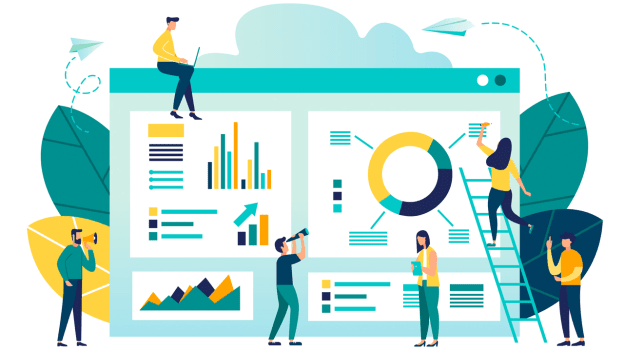Ten buzzwords that made it big in 2019

Organizations today are competing in a tight talent market. Sandwiched between organizational constraints such as high costs, and rising expectations of new-generation employees, talent management has become a tightrope walk. Attracting, engaging and retaining top talent demands an innovative approach to talent management, as is evident from the predicted trends for 2019. Now, as the HR clan stands at the cusp of the year end, it is important to understand where we stand and where we must pick up from, to set the tone for talent management in 2020.
The flavour of 2019: A flashback
2019 saw disproportionate focus on the “human aspect” of human resources. Earlier, 2018 had seen the base being laid for the rise of the “social enterprise”. 2019, with its intensifying economic, social, and political disruptions seemed to force organizations to put humans at the centre of their business strategies. Enterprises were learning to lead and take ahead the social enterprise, and this meant that HR was placing the employee at the heart of business. An increasing intertwining of technology and human touch is perhaps, a significant movement seen in 2019. News was ripe about automation and probable job losses, while focus was high on high-impact, cognitive human interventions and roles. A highly uncertain, fluidic business and talent landscape is forcing organizations to rethink their talent strategies, deriving from the modern-day values of openness, transparency, honesty, agility, speed, et al. As a result, a lot of predictions and expectations floating around. However, whether these buzzwords did real justice to their essence, shall require some digging deep.
Top 10 Talent Buzzwords
Here’s how these talent buzzwords fared in 2019, and look up to in 2020:
Human experience
Till now, employee experience was being deemed the “formula” for employee engagement and retention. Yet, 2019 highlighted the need to improve this by adding more meaning to work, and make it a holistic “human experience”. HR must find new ways to build up an understanding of worker aspirations, to connect work back to the impact it has on people, organization, and society as a whole.
Artificial Intelligence (AI)
AI has been touted as the “game changer” since few years now, with its potential to transform all talent areas, from recruitment to learning & development, to employee communications and so on. Yet, many companies are still figuring out how to leverage this powerful technology to drive talent efficiencies. Companies plan to invest in AI, cognitive technologies, robotic process automation, and robotics significantly over the next 3 years, as per a Deloitte survey.
Super jobs
As machines take over mundane tasks, companies are increasingly redesigning jobs to focus on finding the human dimension of work. We are already seeing it happen- job expectations and roles are becoming more ambiguous, with leadership qualities being in demand, so organizations must hand-hold and upskill employees to help them contribute relevantly. Most super jobs demand highly cognitive competencies- communication, collaboration, learning agility, speed and agility, leading through change, digital etc. 2020 will see many management positions being redefined as super jobs.
Gig
While the term “gig economy” was popularized around the financial crises of 2009, today it has moved to becoming a mainstream talent pool. One in two organizations have increased their use of gig workers in the last five years, and two in five organizations expect to increase their use of the contingent workforce by 2020, as per a report. Till date we saw more of special projects being given out as gig-work, we are now seeing more mainstream roles being offered under flexi-working, remote-working and contractual working models.
Diversity
The definition of diversity became more diverse in 2019, it extended beyond gender, race, LGBTQIA status or religious affiliations, to include elements like geography, education, generations, etc. Second careers, differently-abled hires, targeted Gen Z employer branding- these are some of the developments to look forward to in 2020s.
Wellbeing
Wellness initiatives which focused on aspects such as physical and mental wellness became quite mainstream in 2019. We are now seeing a more holistic lens of “Wellbeing”, which looks at employees from a more wholesome perspective- social, emotional, spiritual, financial wellbeing etc. Wellbeing shall be treated in a boundaryless fashion, an employee will not be considered a mere employees but a multiple-role-player.
Continuous feedback
The past decade established the loss of the annual performance review cycle, and institutionalized new concepts in continuous performance management. While 2019 saw companies moving to “check-ins” and “performance coaching”, 2020 may see more work to cultivate a culture conducive to continuous feedback, through well-designed mechanisms for feedback looping and manager education.
Hyper-Personalization
Move over personalization, organizations are already using AI to hyper-personalize every touchpoint with the customer, vendor, employee etc. As an online shopper, our browsing and purchasing behaviours are tracked to hone in specific needs. The same need arises at the workplace- a chatbot is throwing up AI-based recommendations for an employee to choose his or her rewards, whereas the LMS is suggesting learning paths based on employee’s role, level, aspirations etc. Hyper-personalization in L&D, Rewards, Employee Engagement, Performance Growth are interesting prospects.
Integration
Integration has taken on new meaning, not merely relegated to systems and processes. For example, learning has become very much integrated with the day-to-day work. Integration of personal and professional lives is resulting in new working models such as work-from-home, remote working, flexible working etc. Integration thus takes on a wider and more relevant scope.
Future of Work
This continues to be important- the Future of Work lies in more multi-disciplinary, globalized, and digital business. 2019 saw a real shift in employees’ workplace motivators, forcing organizations to rethink and redraft the talent models. 2020 will be about bringing many of these initiatives to life, and managing the change for success. Strategy plus planned action will be sure to elevate the work ethos to meet the employee expectations and serve the business objectives, creating a sustained outcome.
2020 shall be all about backing up these buzzwords with concrete action. This starts with becoming change-ready on these elements. Interestingly, Deloitte research highlights that organizations are not ready to change on certain aspects such as human experience, learning, leadership skills, talent mobility, and alternative workforce. As the pace of business increases, organizations no longer have the luxury of planning their moves from one steady state to the next. Leaders must proactively take on from these buzzwords of 2019, and make them work for fostering business growth in 2020.

















